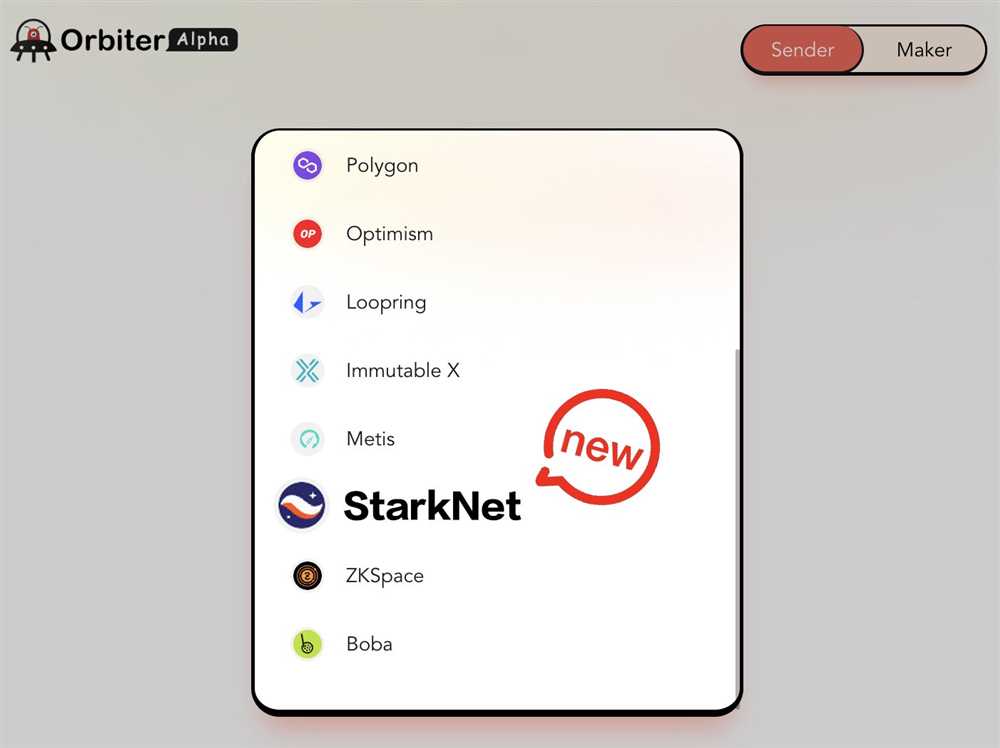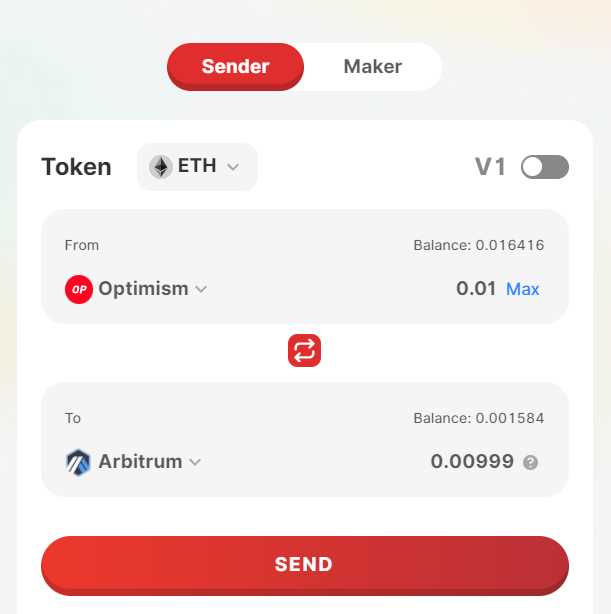
Exploring Orbiter Finance’s Three Varieties of Smart Contracts and Their Significance in Enhancing Security Measures

As the world of cryptocurrencies continues to evolve, smart contracts have emerged as a key technology that enables the automation and execution of agreements on the blockchain. Orbiter Finance, a leading provider of decentralized finance solutions, has developed three types of smart contracts that are revolutionizing the industry and enhancing security in the digital asset space.
First, Orbiter Finance offers self-executing smart contracts, which eliminate the need for third-party intermediaries and ensure that agreements are executed automatically once the predefined conditions are met. This not only streamlines the transaction process but also eliminates the risk of human error or manipulation.
Second, Orbiter Finance’s atomic swap smart contracts enable the trustless exchange of digital assets between parties without the need for a centralized exchange. This type of smart contract ensures that both parties receive their desired assets simultaneously, reducing the potential for fraud or theft during the exchange process.
Lastly, Orbiter Finance’s escrow smart contracts provide an additional layer of security by holding funds in escrow until the terms of the agreement are met. This type of smart contract is particularly valuable in situations where trust between the parties is limited, as it ensures that funds are protected until both parties fulfill their obligations.
The impact of Orbiter Finance’s three types of smart contracts on security in the digital asset space cannot be understated. By eliminating the need for intermediaries, ensuring simultaneous asset exchanges, and providing escrow protection, these smart contracts offer a level of trust and security that was previously unattainable in traditional financial systems. As the industry continues to evolve, Orbiter Finance remains at the forefront of innovation, constantly pushing the boundaries of what is possible with smart contract technology.
What are Smart Contracts?

A smart contract is a computer program that controls the transfer of digital assets between parties based on predefined conditions. It is a self-executing contract with the terms of the agreement directly written into the code. Smart contracts operate on a blockchain network, such as Ethereum, and automatically execute when the conditions specified in the code are met.
Smart contracts eliminate the need for intermediaries, such as banks or legal professionals, as they automatically enforce the agreed-upon terms without relying on human intervention. This makes transactions more efficient, transparent, and secure.
Smart contracts can be used in various sectors, including finance, supply chain management, real estate, and healthcare. For example, in finance, smart contracts can be used to automate loan agreements, insurance claims, or investment transactions. In supply chain management, smart contracts can track the movement of goods and automatically initiate payments when the conditions for delivery are met.
To deploy a smart contract, it is first written in a programming language, such as Solidity for Ethereum. The contract is then compiled into bytecode and deployed on the blockchain network. Once deployed, the smart contract is immutable and cannot be modified, ensuring the integrity and security of the agreement.
| Benefits of Smart Contracts |
|---|
| Efficiency |
| Transparency |
| Security |
| Cost savings |
| Trustworthiness |
Overall, smart contracts offer a groundbreaking solution for secure and automated transactions. By eliminating the need for intermediaries and offering increased efficiency, transparency, and security, smart contracts have the potential to revolutionize various industries and reshape the way we conduct business.
Types of Smart Contracts

Orbiter Finance utilizes three types of smart contracts, each with its own unique features and benefits. These smart contracts are designed to enhance security and streamline operations within the Orbiter Finance ecosystem.
- Static Smart Contracts: These contracts are pre-programmed with fixed instructions and cannot be modified once deployed. They are commonly used for simple transactions, such as transferring digital assets.
- Dynamic Smart Contracts: Unlike static contracts, dynamic smart contracts allow for modifications and updates based on various conditions. They are highly flexible and can adapt to changing circumstances, making them suitable for complex agreements, such as multi-signature transactions.
- Hybrid Smart Contracts: As the name suggests, hybrid contracts combine features of both static and dynamic contracts. They offer a balance between security and flexibility by allowing some degree of modification while still maintaining certain fixed parameters. Hybrid contracts can be used for a wide range of applications, including decentralized finance (DeFi) protocols and supply chain management.
Each type of smart contract has its own advantages and is suitable for different use cases. By offering a variety of contract options, Orbiter Finance ensures that users can choose the most appropriate solution for their specific needs, promoting security and efficiency within the ecosystem.
The Impact of Smart Contracts on Security

Smart contracts have revolutionized the way transactions are conducted and executed. With their ability to automate processes and enforce agreements, they offer numerous advantages in terms of efficiency and trust. However, the introduction of smart contracts also brings new security considerations.
One of the main security implications of smart contracts is the potential for coding errors. Smart contracts are written in computer code, and any bugs or vulnerabilities in the code could be exploited by malicious actors. These vulnerabilities can lead to financial losses, theft, or unauthorized access to sensitive data.
Another security concern with smart contracts is the possibility of external attacks. Since smart contracts are executed on a blockchain network, they are exposed to the same security risks as the underlying blockchain infrastructure. This includes the risk of 51% attacks, where a malicious entity gains control of the majority of the network’s computing power and can manipulate the execution of smart contracts.
Furthermore, the irreversible nature of smart contracts can also pose security challenges. Once a smart contract is deployed on a blockchain, it cannot be easily altered or reversed. This means that any mistakes or vulnerabilities in the code can have long-lasting consequences, potentially leading to significant financial loss or legal disputes.
To mitigate these security risks, it is essential to implement best practices in smart contract development and auditing. This includes conducting thorough code reviews, performing extensive testing, and using secure coding practices. Additionally, implementing proper access controls and encryption mechanisms can help protect sensitive data and prevent unauthorized access.
Overall, while smart contracts offer numerous benefits in terms of efficiency and automation, they also introduce new security considerations. It is crucial for organizations and developers to be aware of these risks and take appropriate measures to ensure the security of their smart contracts and the underlying blockchain infrastructure.
Q&A:
What are the three types of smart contracts offered by Orbiter Finance?
The three types of smart contracts offered by Orbiter Finance are Pay-Per-Use, Fixed-Price, and Revenue-Sharing contracts.
How do Pay-Per-Use smart contracts work?
Pay-Per-Use smart contracts allow users to pay for services and resources on a per-use basis. This means that users only pay for what they actually use, rather than paying a fixed price upfront.


